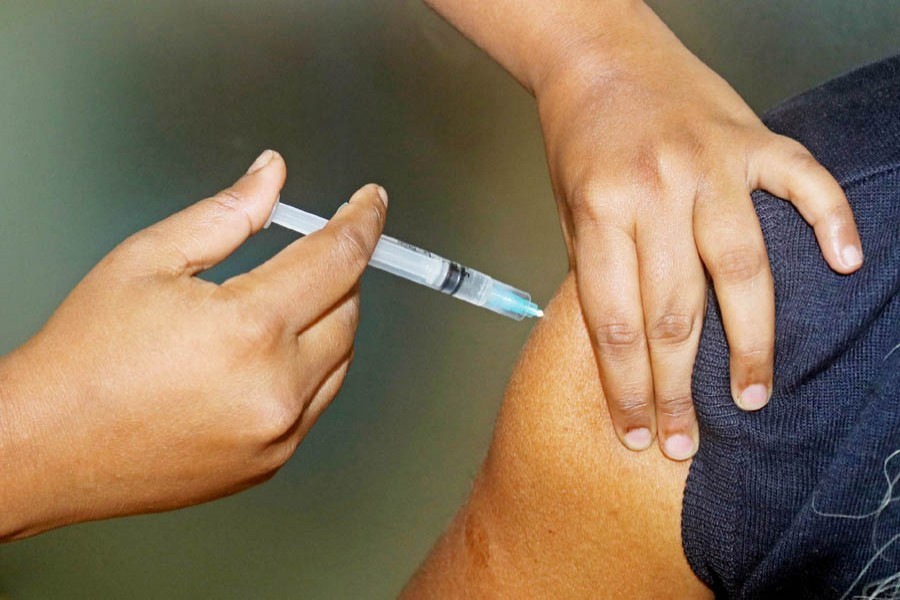
Published :
Updated :

The plan to inoculate children aged 12 to 17 years, as the health minister informed at a briefing of medical professionals on Sunday, is a welcome move by the government. It is believed that the move would be of help to protect the children who have meanwhile started to attend classes in their schools. It all seems fitting in line with the government's still larger objective, as it was given to learn from the same briefing, that it would vaccinate some 80 million people by January next year.
Talking of the government's mass vaccination programme, of which children's inoculation is but a part, the sharp decline in the daily case positivity rate (below 5.0 per cent) over the past two weeks is obviously an indication that it (the programme) has been able to achieve significant progress. In fact, Bangladesh's progress in managing the Covid infection has been amply demonstrated by the Japanese news agency Nikkei's recovery index for September. Conducting its assessment based on a country's infection management, vaccine rollout and social mobility every month, Nikkei placed Bangladesh at 26th position with a score of 60 points out of 90 among 121 countries globally. This is about going 48 notches up on the score card in September compared to the previous month's when its place was 74. According to the Nikkei index, other South Asian neighbours including Pakistan, India, Sri Lanka and Nepal, among others, trail behind Bangladesh.
Admittedly, Bangladesh has made a marked headway within such a short time. The government's mass vaccination drive, of course, can claim its fair share of success on the recovery front made so far. It would also be worthwhile to note at this point the views of some scientists that Bangladesh has already attained or is close to attaining herd immunity. On this score, the experts including Ramon Magsaysay award winning icddr, b scientist, Dr Firdausi Qadri, for example, maintains that 60 to 70 per cent of the population have already gained some types of anti-bodies against the Covid-19. Other experts, on the other hand, believe that the percentage is still higher. However, experts do also hold that naturally gained herd immunity against the pandemic may not last long. In that case, for gaining immunity against Covid-19 at a more sustainable level, the best way is to getting inoculated. As such, the government's plan of progressively increasing its stockpile of the vaccines up to 160 million doses by January makes sense. In this regard, learning from past mistakes, the government would do well to run its mass vaccination drive based on firm commitment for jabs from the potential supply sources, not just hopes. This is more so, when the challenge is to carry out the programme of vaccinating 1.0 million to 1.5 million people on a daily basis, as planned, in an uninterrupted manner.
While stressing the inoculation drive, one cannot also be oblivious of the importance of basic health safety rules. The issue assumes renewed gravity as the members of the public are seen flouting the health rules with abandon. To address the problem, mass awareness campaign, especially on wearing facemask and maintaining social distance should be in force alongside the inoculation programme. These are the prerequisites the government must have fulfilled to see success in its ambitious plan to immunise half the population by January next year.


 For all latest news, follow The Financial Express Google News channel.
For all latest news, follow The Financial Express Google News channel.